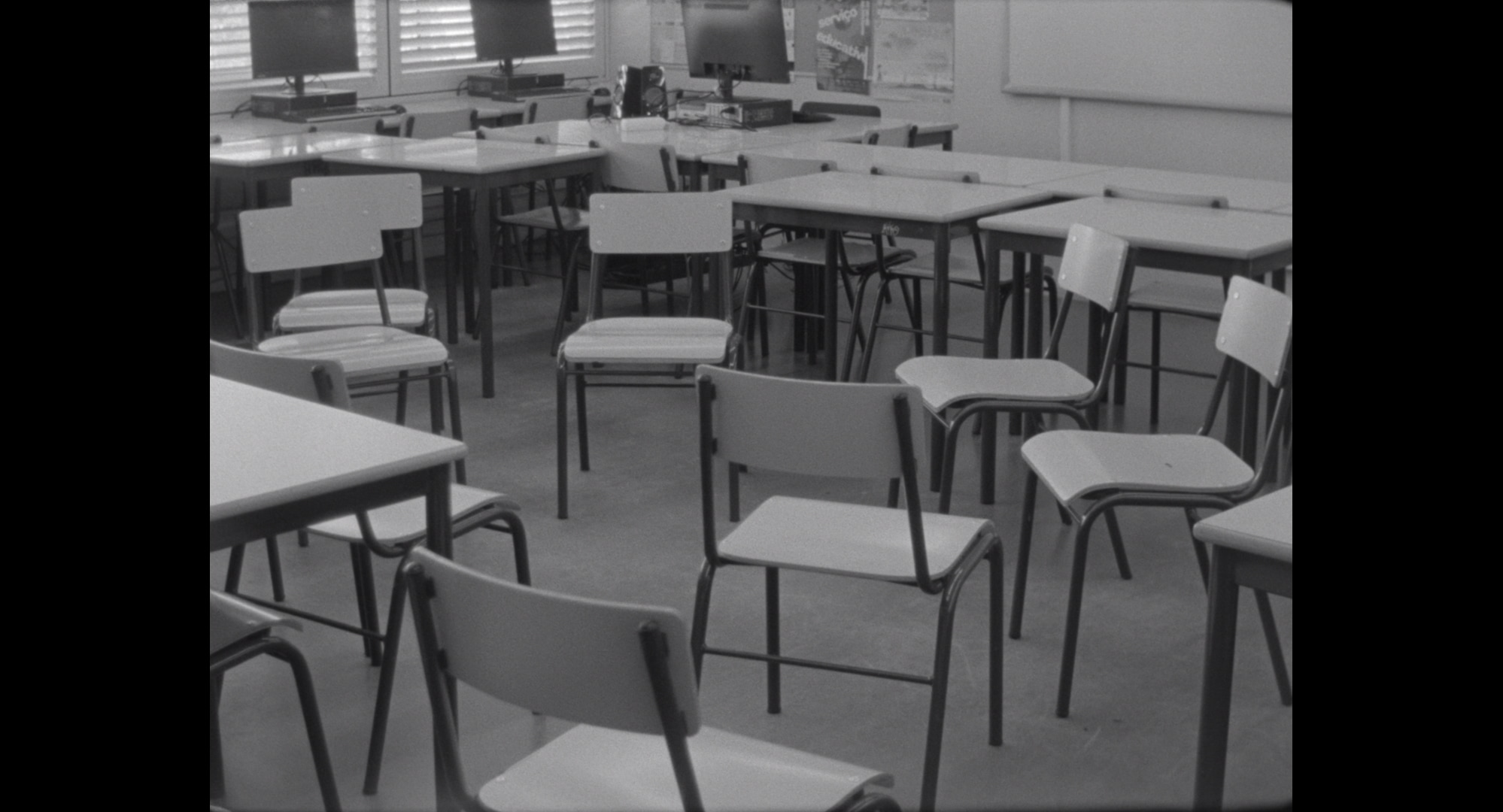Seeing Being Seen: Territories, Frontiers, Circulations 2022
26 September – 7pm
Screening of Ana Vaz’s “13 WAYS OF LOOKING AT A BLACKBIRD” (2020) followed by a conversation between Ana Vaz, Paula Nascimento and Raquel Schefer – A programme by Raquel Schefer.

DETAILS
Taking its title from the poem by Wallace Stevens, “13 Ways of Looking at a Blackbird” is composed of a series of attempts of looking and being looked at. Originating from a commission from Lisbon’s Galerias Municipais and the educational outreach program Descola (Unschool), the film became a kaleidoscope of the experiences, questions and wonders encountered by a couple of high school students, who – over a period of one year and together with filmmaker Ana Vaz – questioned what cinema can be. Here, the camera becomes an instrument of inquiry, a pencil, a song. “The film is a song you can see” wrote one of the students in a collective constellation of phrases and drawings made during one of the workshops. The phrase is a perfect description of a film that explores a nascent ecology of the senses.
About the programme “Seeing Being Seen: Territories, Frontiers, Circulations”:
Initiated in 2020, the programme “Seeing Being Seen: Territories, Frontiers, Circulations,” a proposal by Raquel Schefer, seeks to examine the issues traversing Latin-American contemporary artistic and cinematic production. Through experimental film forms, the works present sensory situations in which the observer is tacitly exposed to the gaze of the observed, “seeing being seen” processes and co-presence experiences close to a model of co-representation exceeding the subject/object seemingly stable opposition. The activation, agency and circulation of perspectives (human and non-human, machinic, animal, vegetable, mineral) are central to these films. They overcome the colonial representations of landscape, nature and the human figure in a framework of reciprocity and de-anthropocentralization, a fundamental issue in a period of imminent ecological catastrophe and threat to the Amerindian peoples.
Previous screenings/talks: Alexandra Cuesta, Laura Huertas Millán, Colectivo Los Ingrávidos, María Rojas Arias;
Project supported by DGartes, part of the Hangar research program ‘Seeing Being Seen: Territories, Frontiers, Circulations’.
BIOS
Raquel Schefer is a researcher, a filmmaker, a film curator, and an associated professor at Sorbonne Nouvelle University. She holds a PhD in Film Studies from Sorbonne Nouvelle University, a Master in Documentary Cinema from the University of Cinema of Buenos Aires, and a degree in Communication Sciences from NOVA University of Lisbon. She published the book “Self-Portrait in Documentary” and several book chapters and articles. Raquel taught at Grenoble Alpes, Gustav Eiffel, and Rennes 2 Universities, as well as at the University of Cinema of Buenos Aires, the University of Communication in Mexico City, and Elías Querejeta Zine Eskola. She was a Visiting Scholar at the University of California, Los Angeles and a postdoctoral FCT fellow at the CEC/University of Lisbon and the IHC/NOVA University of Lisbon. She is a co-editor of the quarterly of theory and history of cinema La Furia Umana and a program advisor at the International Documentary Film Festival Amsterdam (IDFA).
ANA VAZ born in 1986 in Brasilia, Brazil, is an artist, film-maker and founder of in(ter)disciplinary collective COYOTE. Her film-poems are underpinned by experimental collages of images and sounds, discovered and produced, to reflect upon situations and contexts which are historically and geographically marked by narratives of violence and repression. Expansions or consequences of her films, her practice may also be embodied in writing, critical pedagogy, installations, film programs or ephemeral events. Her films have been screened and discussed in film festivals, seminars and institutions such as the Berlinale Forum Expanded, Tate Modern, Palais de Tokyo, Jeu de Paume, LUX Moving Images, New York Film Festival – Projections, IFFR, TIFF Wavelengths, BFI, Cinéma du Réel, CPH:DOX, Flaherty Seminar. In 2015, she was the recipient of the Kazuko Trust Award presented by the Film Society of Lincoln Center in recognition of artistic excellence and innovation in her moving-image work. In 2020, her film Apiyemiyekî? won awards at the international film festivals Punto de Vista (Spain), 25FPS (Croatia), Black Canvas (Mexico), Festival dei Popoli (Italy), among others.
Paula Nascimento was born in Angola and lives in Lisbon. She is a cultural professional with roles in programming, project management, production and communication. She has worked mainly in the performing arts. She has a degree in Communication and in Performing Arts Management. She programmed and directed the EDP Rock Street Africa stage at Rock in Rio Lisbon (2018) and the three editions of the Africa Festival (2005, 2006, 2007) for the Lisbon Festivities, an event that brought a new stance and vision of music produced in Africa or with connections to the continent. She was project manager at Africa.Cont (2009-2016). She directed Teatro Taborda (2005), worked in the direction of Teatro Maria Matos (2000-2004) and developed the Ciclo África Cá (2002). Taught Cultural Management and Events Production at Restart – Instituto de Criatividade, Artes e Novas Tecnologias (2008-2015).Produced and participated in the film “13 Ways of Looking at a Blackbird”, by Ana Vaz (2019/2020). Collaborated with Pedro Costa in the presentation of the film “Cavalo Dinheiro” (2014). He was a founding member of Projecto Ruínas – Grupo de Teatro and collaborates occasionally with independent creators. He lives intensely his Lisbon and the changes of the cultural life, recognizing the marks of time in the streets and mentalities. Angola and Cape Verde are living histories of her family. Paula persists in the struggle to understand the world and to change the narrow view on a culturally complex continent. She is a member of the somewhat legendary band Falhumana.
